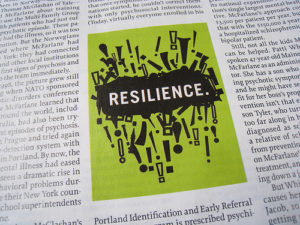 How quickly you can recover and even grow from a set-back will make a big difference in your ability to navigate to success. The good news is that there are actions you can take to significantly improve your resilience. If you’re thinking that all is well and you have no need to read further, consider that the best time to build your resilience is when everything is going well.
How quickly you can recover and even grow from a set-back will make a big difference in your ability to navigate to success. The good news is that there are actions you can take to significantly improve your resilience. If you’re thinking that all is well and you have no need to read further, consider that the best time to build your resilience is when everything is going well.
Let’s face it, on the path to success there will be obstacles and detours.  The key is to avoid wallowing or ruminating on the misfortune and figuring out how to move forward. This is not denial or smoothing over the bad situation. Research shows that denial and avoidance will make it worse, that is why positive thinking alone is so dangerous. Recognizing negative emotions and acknowledging the painful situation are critical for moving forward.
The key is to avoid wallowing or ruminating on the misfortune and figuring out how to move forward. This is not denial or smoothing over the bad situation. Research shows that denial and avoidance will make it worse, that is why positive thinking alone is so dangerous. Recognizing negative emotions and acknowledging the painful situation are critical for moving forward.
–
–
How can we significantly improve our resilience?
Dispute negative feelings. Brain research has shown that negative emotions spiral down to more negative memories automatically. In order to stop this spiral, review your situation for the facts and dispute your interpretation or story like a lawyer would do. Or another way to think of it is to imagine you are video taping the scene; how much of what is happening is in your head versus what is actually happening?
Connect with others socially. Research consistently shows a strong correlation between social interactions and positive emotions. Plan a team activity with your colleagues; this time of year reminds me of some great times with coworkers at spring training baseball games. Plan time to socialize with friends and family through good conversations or a fun activity.
Use the power of your memory to remember times when you felt positive emotions (i.e. peace, joy, gratitude) and re-live those feelings now. Write a list of great memories that you can refer to when you are in the midst of a challenging time. It is easier to remember them now than when you are in the middle of the detour. Remember to read and feel the emotions (just reading or saying alone is not enough).
How have you knocked over obstacles and shortened your detours for more resiliency? Please share in a comment.
photo credits: GurrillaFutures, EssjayNZ
Notifications